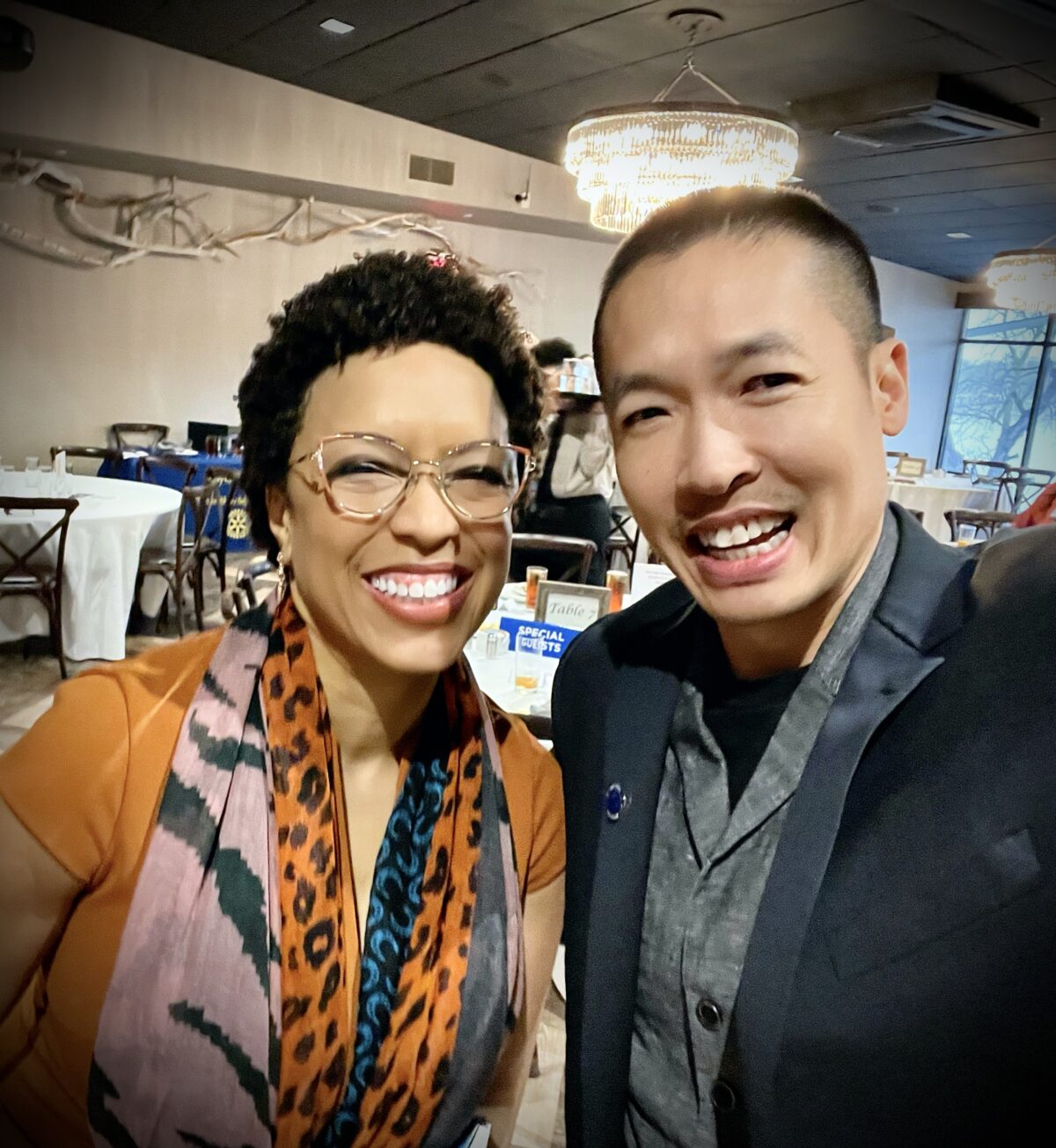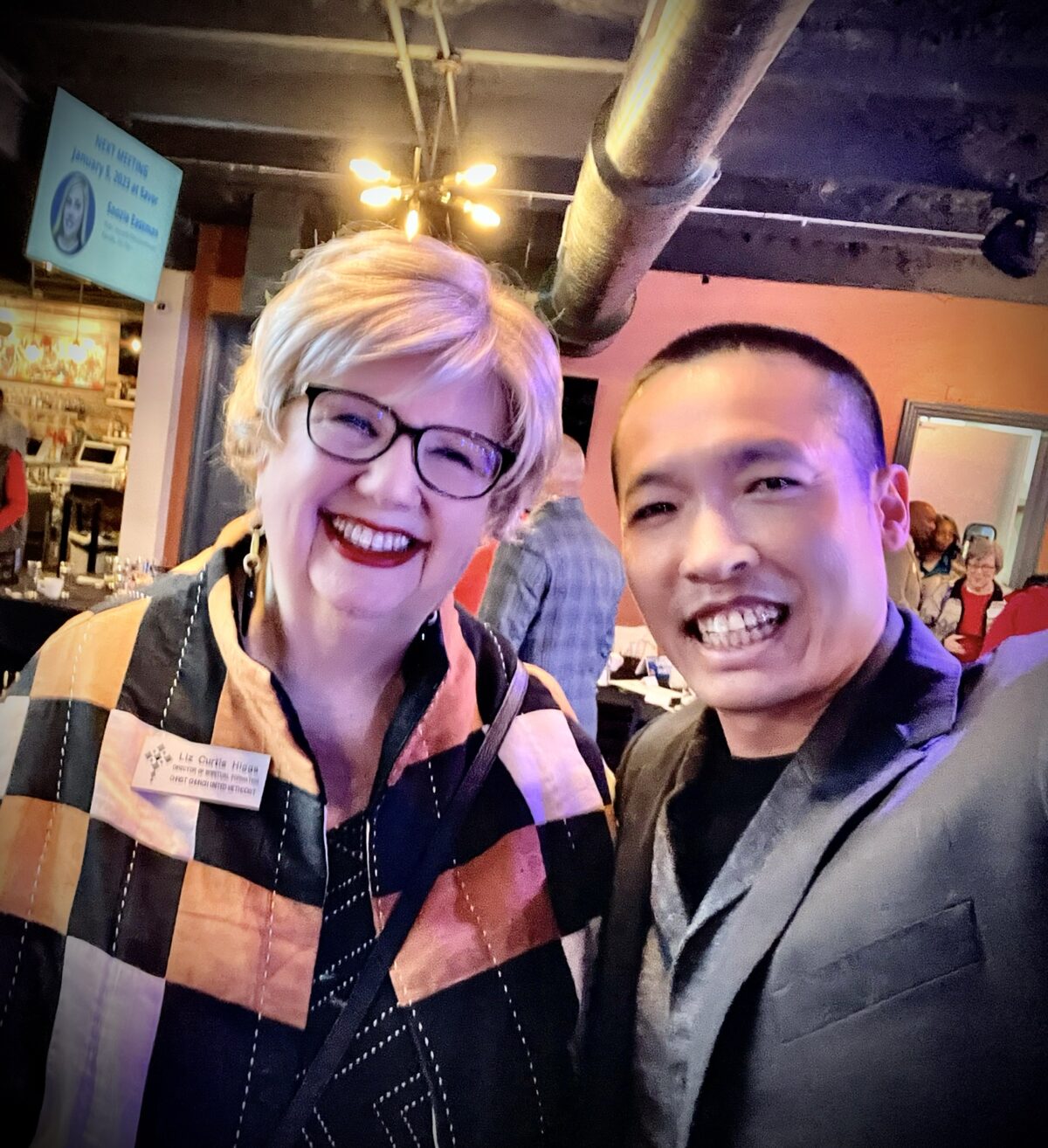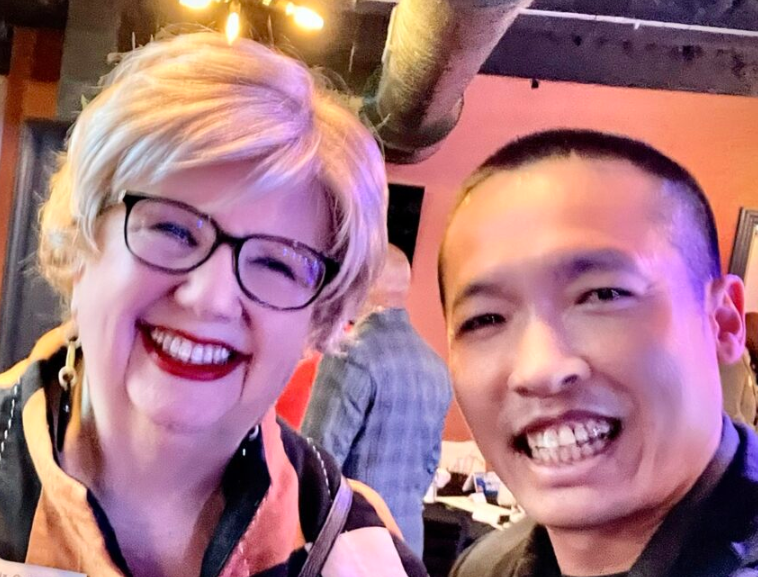On February 16th, 2023, Di Tran attended a weekly event hosted by the Rotary Club of Louisville where she had the opportunity to meet with Dr. Price. From the start of their conversation, Di Tran was struck by Dr. Price’s opening statement, “I pray that God talk through me, and to you today.” It was an indication of the deep connection that Dr. Price had to her faith and a sign of her sincerity in addressing the issues that affect the community.
Dr. Price introduced herself as a member of the Urban League, a non-profit organization that aims to promote economic empowerment and social justice for people of color. She described how she starts her staff meetings with a reflection on the past, present, and future of the Urban League. She spoke with conviction and confidence that the past is obsolete, the future is obsolete, and the current state of progress is where the focus should be. She emphasized that the community must work together to create a future where there is no need to talk about equity, especially for black and brown people.
Dr. Price’s message was about leaning into discomfort and feeling it for others. It was a call to action for people to step outside their comfort zones and confront the challenges facing the community. She stressed the importance of taking practical steps to address the issues that prevent people from realizing their full potential.
One practical example that Dr. Price shared was the accessibility of Kumon tutoring for underprivileged children. Di Tran was highly aligned with this idea, recognizing that education is one of the keys to breaking the cycle of poverty. Dr. Price’s emphasis on the importance of practical solutions and small steps resonated with Di Tran and many others in the room.
Dr. Price’s message was one of hope and progress. She talked about the future of the city being bright because of people like herself and Di Tran coming together to do small things that add up. It was a reminder that positive change is possible, and it starts with each individual making a difference in their own way. Di Tran left the event feeling inspired and encouraged to continue making a positive impact in the community.
In conclusion, Di Tran’s meeting with Dr. Price at the Rotary Club of Louisville’s weekly event was a reminder of the importance of focusing on others and having faith in the future. As Di Tran writes in his first book, “Drop the ME and Focus on the OTHERs,” the key to personal and professional growth is shifting our attention away from ourselves and towards those around us. Dr. Price’s emphasis on leaning into discomfort and feeling it for others, as well as her commitment to providing resources like Kumon tutoring for underprivileged children, are shining examples of this principle in action.

As Di Tran prepares to release his second book, “Drop the FEAR and Focus on the FAITH,” we can look forward to further insights and inspiration on how to navigate the challenges of life and work with courage and conviction. With the guidance of leaders like Dr. Price and the example of Di Tran’s own journey, we can all strive to become better, more compassionate, and more effective in our personal and professional lives.











